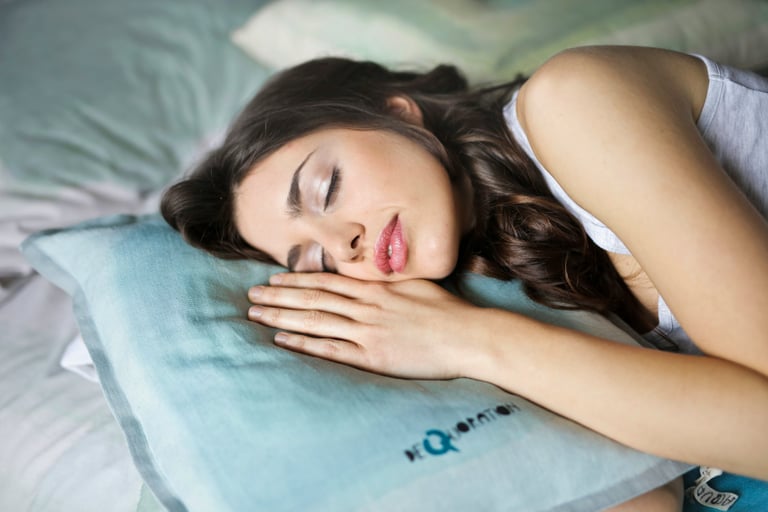Self-Hypnosis for Better Sleep: Overcome Insomnia
In today’s fast-paced world, achieving a good night's sleep can feel like a distant dream for many. Sleep issues, ranging from insomnia to sleep apnea, affect millions globally, impairing health and reducing quality of life. This article explores the underlying causes of sleep disturbances and the role of relaxation techniques, particularly hypnotherapy, in fostering better sleep.
Understanding Sleep Issues
Sleep problems can stem from a variety of sources. Physical health conditions such as chronic pain or respiratory issues can significantly impact sleep, as can mental health disorders like anxiety and depression. Lifestyle factors, including excessive screen time before bed, caffeine consumption, and irregular sleep schedules, also play a critical role. Addressing these issues often requires a multifaceted approach, emphasizing both medical and behavioral solutions.
The Science of Sleep and Stress
Stress is a common culprit behind sleep difficulties. The body’s stress response system, activated by both physical and psychological stressors, releases hormones like cortisol, which can keep us awake at night. This is where relaxation techniques come into play. Activities like deep breathing, mindfulness meditation, and progressive muscle relaxation can help mitigate the stress response and promote a state conducive to sleep.
What is Hypnotherapy?
Hypnotherapy is a therapeutic technique that uses guided relaxation and intense concentration to achieve a state of heightened awareness, often referred to as a trance. During this state, individuals are more open to suggestions, which can be used to encourage changes in behavior, thoughts, and emotions related to sleep.
How Hypnotherapy Aids Sleep
Hypnotherapy helps combat sleep issues by addressing the subconscious patterns that contribute to sleep disturbances. A hypnotherapist can implant suggestions that promote positive sleep behaviors and attitudes, such as:
Reinforcing a regular bedtime routine
Developing positive associations with sleep
Reducing anxiety and stress related to sleep
Several clinical studies have shown that hypnotherapy can effectively reduce symptoms of insomnia, decrease the time it takes to fall asleep, and increase the overall quality of sleep.
Practical Tips for Using Hypnotherapy
Choose a Qualified Hypnotherapist: Ensure the hypnotherapist is certified and experienced, particularly in dealing with sleep disorders.
Be Open and Committed: For hypnotherapy to be effective, one must be open to the process and committed to participating actively.
Combine with Other Relaxation Techniques: Incorporating other relaxation techniques like yoga or meditation can enhance the effectiveness of hypnotherapy.
To sum up...
Sleep is a fundamental human need, critical for physical health and emotional well-being. For those struggling with sleep issues, hypnotherapy offers a promising solution. By fostering relaxation, altering negative behaviors, and instilling positive sleep patterns, hypnotherapy can unlock the door to restful and rejuvenating nights.
This approach, combined with a proper understanding of the underlying causes of sleep disturbances and a commitment to change, can significantly improve one’s quality of life. If sleep has been elusive, considering hypnotherapy might just be the key to better nights ahead.
We hope these tips will help you overcome your sleep issues. Have you tried any of these techniques? Share your experiences with Glenn on social media and in the Ultimate Hypnosis app!



21 Day Sleep & Relax Challenge
Begin your transformative mindfulness journey with the 21 Day Sleep & Relax Challenge!
Developed by hypnotherapist Glenn Harrold, this challenge includes 21 immersive hypnosis and meditation audio recordings, designed to help you relax and sleep deeply.
This challenge will work for everyone and includes the following hypnosis audio titles plus many more:
Deep Sleep Every Night
Binaural Deep Sleep Hypnosis
Mindfulness for Deep Sleep
Stars In The Night Sky
Complete Relaxation
Star Meditation
Getting started is simple! Download our Ultimate Hypnosis app, sign up for an account, and begin your free 7-day trial to experience the power of hypnotherapy at your fingertips.
Plus, take advantage of our exclusive offer! Sign up with the discount code SLEEP20 to receive 20% off your app membership. (Please note that to receive the discount you must sign up via the special link below). Transform your quality of sleep today!


